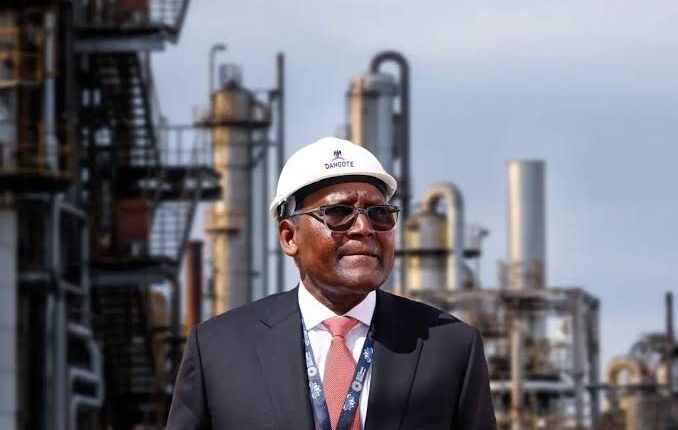BREAKING: Dangote: We Might Not Have Tried This — on the Refinery’s Scale

Africa’s wealthiest man, Aliko Dangote, has revealed that the immense scope of the Dangote Refinery project would have discouraged its commencement had he and his team fully grasped its magnitude at the outset.
Speaking while hosting representatives from the Lagos Chapter of the Nigerian Society of Engineers (NSE) at the Dangote Petroleum Refinery located in Ibeju-Lekki, Lagos, Dangote admitted the project turned out to be much larger than initially envisioned.
He said, “Honestly, if we had fully understood the magnitude and challenges involved, we may not have even attempted it, but it is because we didn’t know what we were into initially and the courage, or maybe, naivety that got us this far.”
Highlighting the refinery’s scale, he noted it was designed to accommodate an enormous flow of logistics, including 600 product vessels and around 240 crude oil tankers annually.
Dangote also detailed some of the obstacles encountered during the refinery’s development — including navigating swampy terrain, clearing vast expanses of land, and dredging 65 million cubic metres of sand from 20 kilometres offshore — all done with the intent of protecting the livelihoods of local fishing communities.
“We had to uproot thousands of trees manually. Sand-filling alone took 18 months but we made a deliberate decision to preserve the livelihoods of those living nearby, especially fishermen,” he explained.
When asked about the role of Nigerian engineers and their future in national development, Dangote affirmed his dedication to empowering local professionals through more opportunities.
“We appreciate that. There are many more projects coming, and with them, we will continue to develop our engineering base. Even when we don’t have enough jobs to give, we must still train people. Skills are assets, whether they are used here or abroad. We want Nigeria to earn from exporting knowledge, not just oil,” the business mogul stated.
Originally, the project anticipated employing as many as 50,000 foreign workers. However, Dangote disclosed that only 12,000 to 14,000 expatriates were ultimately engaged, with the vast majority of workers being Nigerians — including engineers, welders, and fitters.
“Eighty-five per cent of the commissioning work was done by Nigerians. It is not because I am an engineer but because they have proven to be among the best. Today, we are our own EPC (Engineering, Procurement and Construction) contractors. We are building this country ourselves,” he said.
Encouraging the NSE delegation, Dangote urged them to see their visit as aligning with a broader national agenda focused on industrial growth and self-reliance.
Responding on behalf of the visiting engineers, the Chairperson of NSE Lagos branch, Olukorede Kesha, hailed the Dangote Refinery as a monumental achievement for engineering in Africa.
She remarked, “The NSE exists to ensure continuous professional development, and this visit is part of that goal. We have heard so much about the refinery but seeing it ourselves has been extraordinary.”
Kesha also praised the project’s reliance on local expertise, noting the significant involvement of Nigerian professionals over foreign ones.
“If we have more of this kind of development in Nigeria, unemployment and poverty would be in the past. We are extremely proud of what we have seen. Nigerians are taking the lead here,” she added.
She stressed that such transformative industrial efforts not only help in solving national problems but also position Nigeria as a future exporter of refined goods and technical knowledge.
The NSE team also toured the Lagos-Calabar coastal highway, which they described as “an enormous national asset.”
